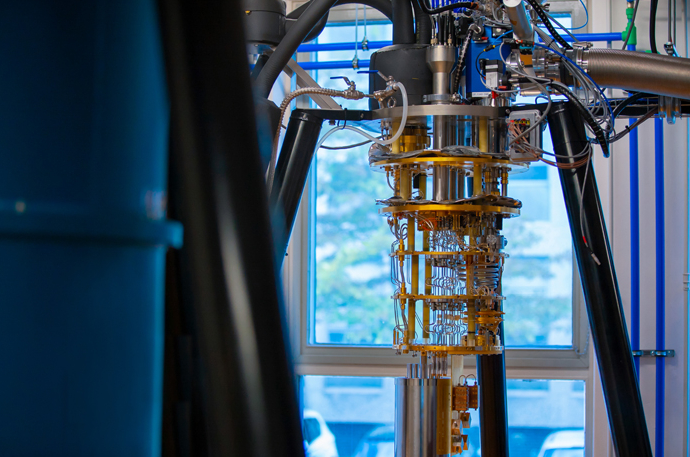 EMERGING TECH
EMERGING TECH
 EMERGING TECH
EMERGING TECH
 EMERGING TECH
EMERGING TECH
While Alphabet Inc.’s researchers were working on achieving quantum supremacy, staff at an Intel Corp. lab in Ronler Acres, Oregon, have spent the past five years pursuing a different, no less important goal: “quantum practicality.”
Intel today revealed the fruit of the Ronler Acres lab’s efforts: a cryogenic system-on-chip for controlling quantum computers. The processor is named Horse Ridge, after a popular mountain biking trail in Oregon known for its chilly temperatures, and was developed through a collaboration between Intel and two Dutch research institutions.
Today’s quantum computers are so fragile that they must be kept in a cool, hermetically sealed environment to work. That insulated environment is typically provided in the form of a cryogenic refrigerator kept at temperatures near absolute zero. The quantum hardware is connected to the outside world via a complex mesh of cables and classical computing instruments that allow researchers to manipulate the qubits inside.
The way Intel sees it, all that equipment is standing in the way of the technology becoming commercially viable. A typical quantum computer has hundreds of connective cables and that number is only set to rise as companies work to build bigger, better quantum machines. If current quantum machines with their few dozen qubits require hundreds of cables to interact with the outside world, then tomorrow’s production-grade machines with their thousands or potentially even millions of qubits would need an impractical amount of supporting hardware to work.
Enter Horse Ridge. Intel said the chip, which is about the size of a tea cup saucer, can perform the same task as a traditional quantum computer control system with hundreds of cables. Horse Ridge sits directly inside the cryogenic refrigerator in which the quantum hardware runs and wirelessly manipulates qubits with electromagnetic microwave pulses that correspond to programming instructions.
Intel hailed the chip as a significant milestone towards making large-scale quantum computing a reality. “If we can effectively solve the challenges of controls and interconnects in quantum systems, quantum practicality will soon appear on the horizon,” Jim Clarke, the chipmaker’s director of quantum hardware, wrote in a blog post. But he stressed that the research community still has “many more breathtaking miles to run” before the technology is ready for prime time.
Support our mission to keep content open and free by engaging with theCUBE community. Join theCUBE’s Alumni Trust Network, where technology leaders connect, share intelligence and create opportunities.
Founded by tech visionaries John Furrier and Dave Vellante, SiliconANGLE Media has built a dynamic ecosystem of industry-leading digital media brands that reach 15+ million elite tech professionals. Our new proprietary theCUBE AI Video Cloud is breaking ground in audience interaction, leveraging theCUBEai.com neural network to help technology companies make data-driven decisions and stay at the forefront of industry conversations.